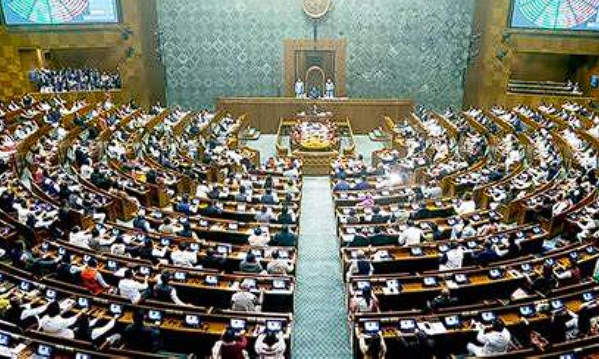Tribhuvan Sahkari University
The Government of India has introduced a Bill to establish the Tribhuvan Sahkari University. This new institution will be located on the campus of the Institute of Rural Management Anand (IRMA) in Gujarat. The Bill was presented in Lok Sabha by the Minister of State for Cooperation, Krishan Pal Gurjar, on February 3, 2025. The university aims to be an institution of national importance, focusing on cooperative education and training.
Purpose and Objectives
- The primary goal of Tribhuvan Sahkari University is to enhance technical and management education in the cooperative sector.
- It will provide specialised training and promote research and development.
- The university seeks to achieve global standards in cooperative education. It responds to the need for qualified professionals in the cooperative sector.
Background and Vision
Home Minister Amit Shah first announced plans for a National Cooperative University in 2021. He brought into light the necessity for such an institution during the National Cooperative Conference. Several countries, including Germany and Kenya, already have dedicated universities for cooperatives. This initiative aims to strengthen India’s cooperative movement.
Unique Features
Tribhuvan Sahkari University will be the first of its kind in India. It will focus exclusively on cooperative education. The university plans to establish sector-specific schools covering dairy, fisheries, banking, and more. These schools will cater to the needs of various cooperative sectors across India.
Structure and Affiliation
The university will have 4-5 affiliated colleges in states with a high density of cooperative societies. It will also establish 1-2 colleges in states with fewer cooperatives. The university intends to utilise online learning platforms like SWAYAM to enhance accessibility.
Importance of the Cooperative Sector
The cooperative sector plays a vital role in India’s economy. It contributes to agricultural credit, fertiliser production, and procurement of essential goods. The government aims to address the fragmented education and training infrastructure in this sector. The establishment of the university is seen as a step to standardise and improve the quality of training.
Impact on IRMA
IRMA, founded in 1979 by Dr. Verghese Kurien, will transition into a school within the new university. This change will preserve its identity while enhancing its responsibilities in the cooperative sector. The dissolution of the IRMA society will formalise this transition.
Future Prospects
The establishment of Tribhuvan Sahkari University is expected to create a robust framework for cooperative education. It aims to ensure a steady supply of qualified professionals for various roles within cooperative societies. This initiative aligns with the government’s broader vision of strengthening the cooperative movement in India.
Month: Current Affairs - February, 2025
Category: Government Schemes Current Affairs








